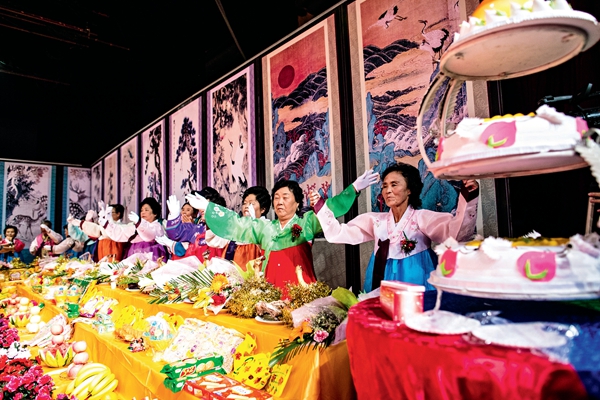In a society that glorifies youth and change in its popular imagery, the common negative images of age and aging can fuel disrespectful behavior. Among the ageist biases reported, older people felt they were thought of as useless, less intelligent, stingy and a burden. As a group, there is a perception in developed countries that they are demanding and a drain on public resources. Older people who are ill or who have disabilities are more likely than those who are healthy to be viewed negatively.
However, the extent to which seniors participate in the social, civic, and economic life of the community promotes an environment of inclusion. But it’s becoming clear that gaining respect and ensuring social inclusion of our seniors goes beyond societal change: factors such as culture, gender, health status and economic status play a large role.
From a cultural standpoint, we can look to many other countries for inspiration for change. Korean families, for example, have special birthdays for the 60th and 70th birthdays.

These ages are explicitly chosen to celebrate the passing into “old age.” Older parents are likely to be cared for by their children and assume the head of household. In Asia, elder care is seen as a responsibility for the rest of the family.
In Jamaica and in Ponce, for example, older people feel they are given priority service in businesses and public places. In Islamabad and Moscow, it’s common practice for people offer older adults their seats on buses.
Other examples of age-friendly services are mentioned in cities like in Portage la Prairie, Canada, where paper ballots are delivered to the homes of older people homes who can’t get to polling stations, and headsets are provided in churches for people with hearing impairments. At a bank in Mexico City, employees are trained to treat older people well, and at the end of each month time at the bank is reserved exclusively to serve older people.
In Japan, seniors make up nearly a third of the entire population, many of which are still working due to the decreasing workforce in Japan. Multiple generations also live under one roof, with the grandparents taking care of the grandchildren. Resources are pooled, helping to alleviate the financial strain. Strong community bonds, active lifestyles, and healthy diets are all credited with strengthening the senior population.
Services at Home
Though Western cultures are not as progressive as others when it comes to including older adults, many services are provided at a local level. Our offices offer a variety of programs and services to help seniors navigate the path of aging. The Council on Aging provides free financial services, help with Medicare, Medicaid, food assistance, or affordable transportation. Call us at (541) 678-5463, and we can help point you to the services, information, and resources you need.
Looking Forward
The good news is that smaller communities often cultivate a sense of “togetherness” more easily than large cities. With an estimated population of only 100,000, Bend can offer community-level support to nearly anyone who asks for it – including older adults.
Respect and social inclusion are issues that require a fundamental change in cultural awareness. It will not happen overnight, but we can make steady progress in overcoming the obstacles by working together.
How can you ensure your community is age-friendly, respectful, and inclusive? Look at this checklist for ideas on how a few small changes can make a big difference in the social outlook of an older adult.


